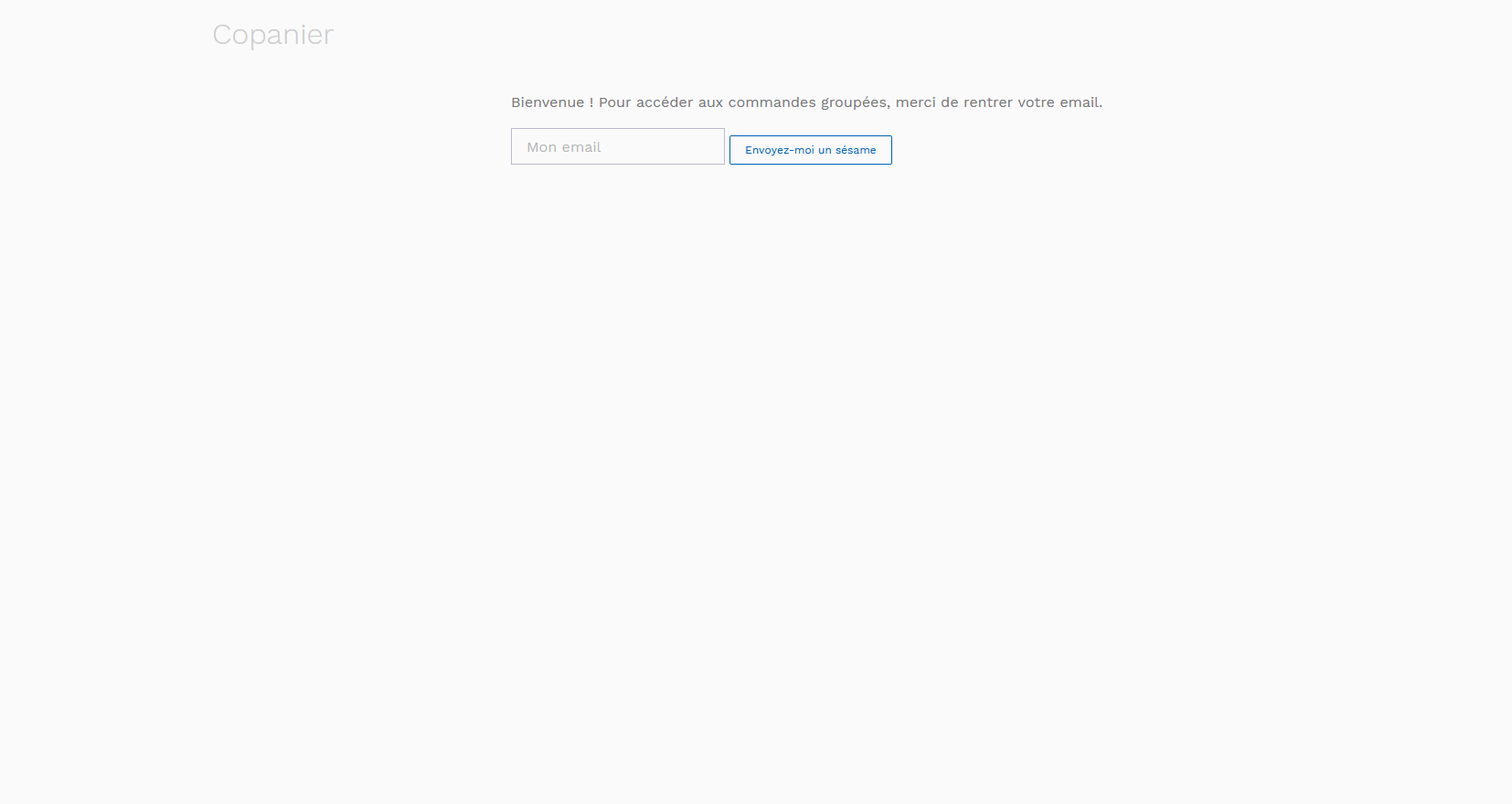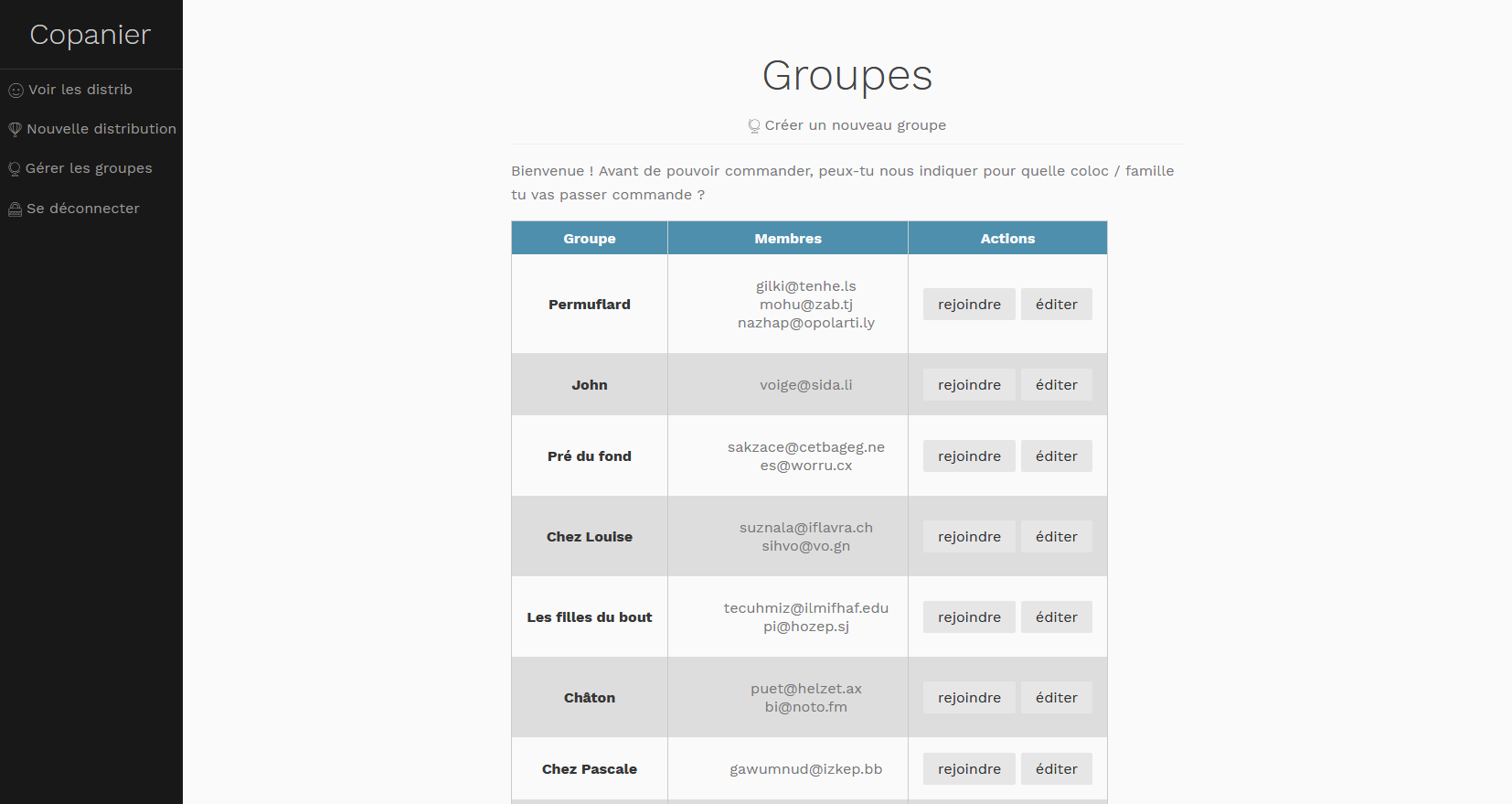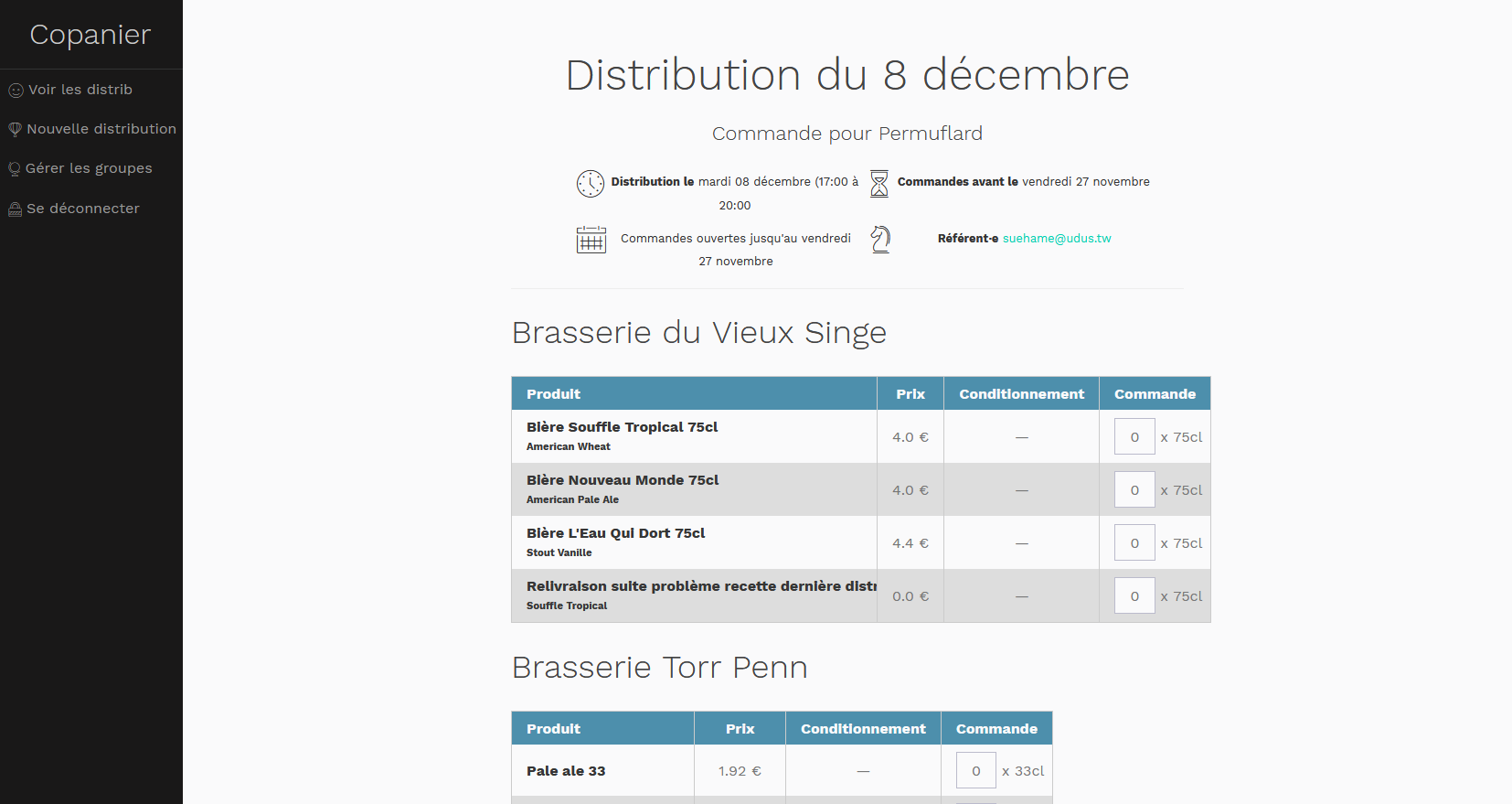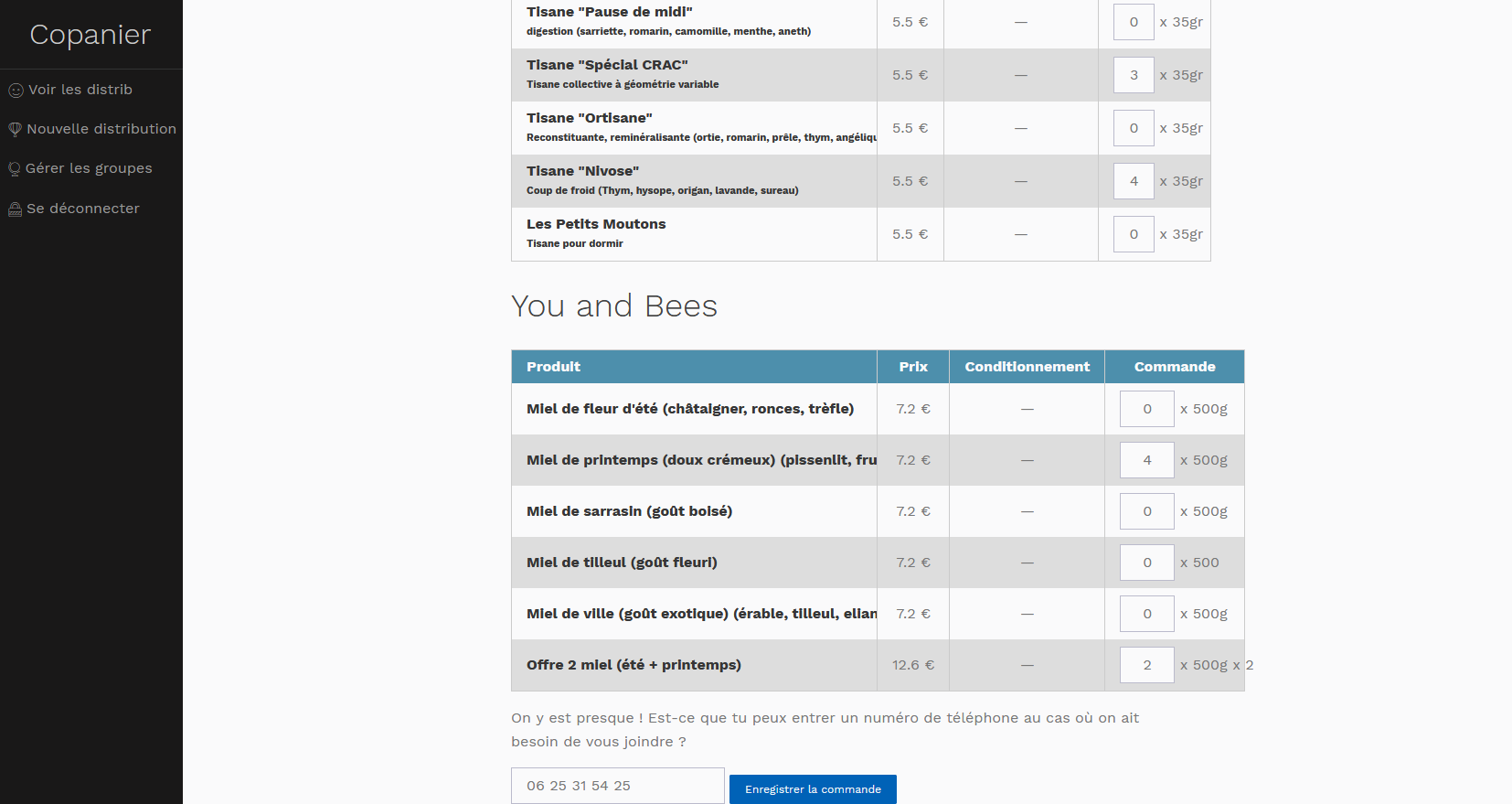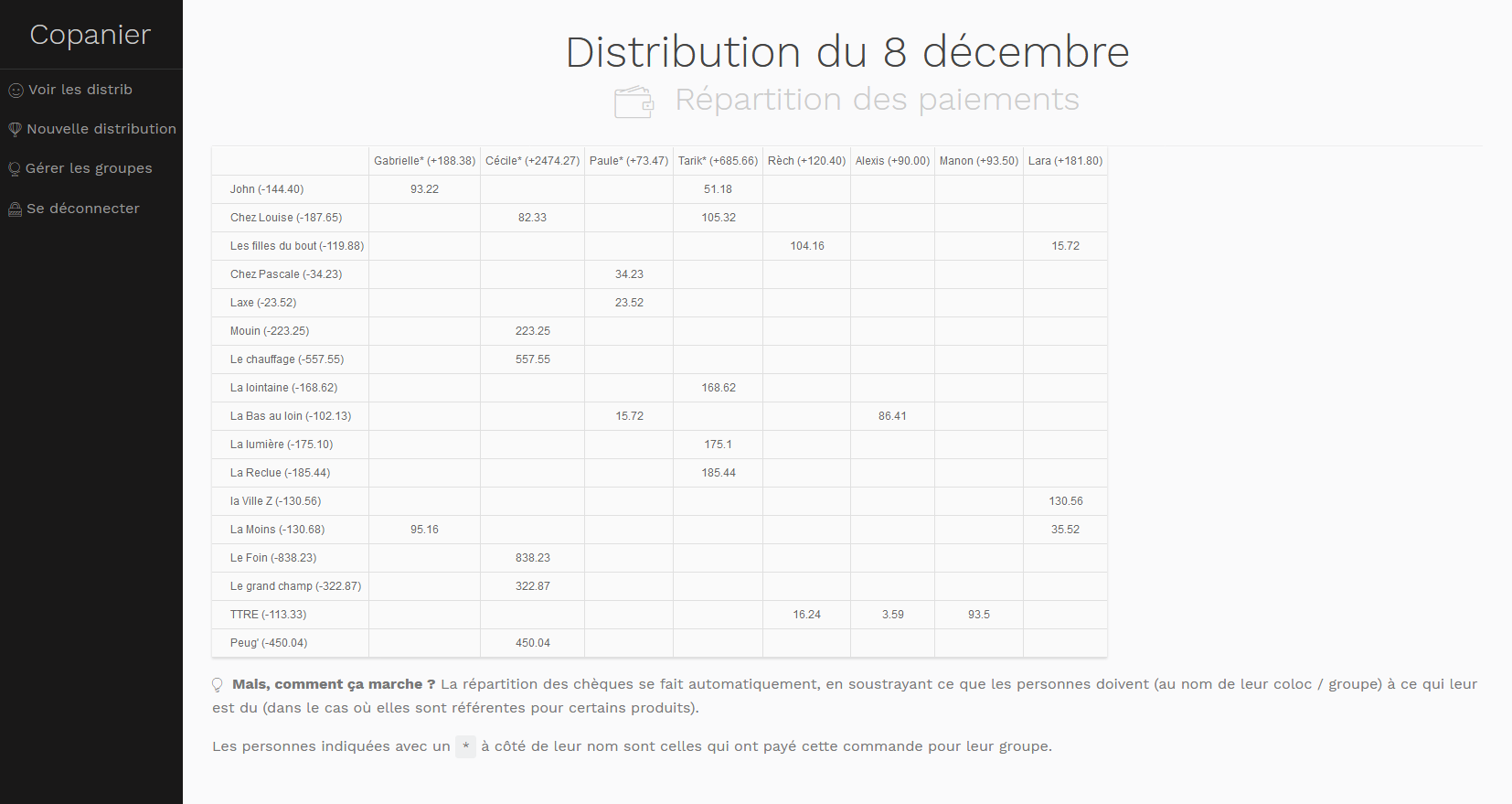| copanier | ||
| docs | ||
| screenshots | ||
| tests | ||
| .flake8 | ||
| .gitignore | ||
| Makefile | ||
| MANIFEST.in | ||
| pytest.ini | ||
| README.md | ||
| requirements-dev.txt | ||
| setup.cfg | ||
| setup.py | ||
Copanier
Copanier is a software to make grouped orders. It's generally used by small groups who want to buy food supplies directly from producers, without requiring each individual to see each producer.
It helps people to order a set of defined products, and provide a few helpers to ease the life of everyone involved :-)
How does it work?
- A new delivery is created ;
- Producers and products are created in the software (or copied from a past delivery) ;
- (Optional : prices are checked with the producers to be sure they are still okay) ;
- Individuals place their orders for their groups ;
- Referents ask their producers for the products and pay them ;
- There is a delivery - the tool provides summary of who ordered what ;
- A dispatch of who has to pay whom is done ;
- XXX
- ... Profit !
Features
- Handles groups of people (useful for people sharing a house) ;
- Handles multiple producers in one delivery ;
- Intelligent dispatching of payments, without any central bank account ;
- Support for shipping fees ;
Screenshots
Philosophy
- Keep things simple.
- Do not rely on JavaScript (or the less possible)
- Lower the cost of maintainance of the project
FAQ
How files are stored? Does this rely on a database?
The current implementation of copanier doesn't need an external database, and relies on YAML files instead. It's done to keep things simple and easy to work with / backup, and we believe the needs for a database are very little, since we would very rarely have multiple writes at the same time.
How is it different from cagette?
Cagette is a free software which aims at solving a larger problem that what we're solving. Cagette has a more general approach, providing a tool that can be used by groups of producers, AMAPs, people having a physical store, and group of consumers.
In copanier, we only focus on groups of consumers. We want to keep things as straightforward and effective as possible, by keeping the problem small. We do one thing and we try to do it the best way we can! We believe copanier is better suited for people who want to organise the way we do, but if copanier doesn't fit your needs, cagette might :-)
Install copanier locally
The project relies on Python 3.7+, so if you don't have it yet, here's your chance!
One way to install it, is to use pyenv:
$ pyenv install 3.7.1
$ pyenv global 3.7.1
And then create a virtualenv so everything is installed separately from the rest of the system:
$ # Get the source code locally
$ git clone https://github.com/spiral-project/copanier.git
$ cd copanier
$ # Create the virtualenv
$ python -m venv venv
$ # Activate it!
$ source venv/bin/activate
$ # install everything!
$ pip install -e .
Run local server
Once everything is installed, you can use the copanier command to run the server.
Make sure venv is active, then:
$ copanier serve
Optionally autoreload the server when you change a python file (needs hupper):
$ copanier serve --reload
Then browse to http://localhost:2244
Run the tests
If you want to contribute, don't hesitate! In this case, it might be helpful to install a few other dependencies.
$ pip instal -e .[test]
Then, to run the tests:
$ # install the required dependencies for dev
$ pip install -r requirements-dev.txt
$ # run the tests
$ py.test tests
Configuration
Copanier uses environment variables to configure its behaviour. All the configuration flags are specified in this config.py file and in order to use them, you will need to set them, considering their name starts with COPANIER_.
One simple way to handle this behaviour, is to have a config.env file and source it (with source config.env) before starting the server. Here is how this file could look like:
export COPANIER_SITE_URL="https://yourdomain.com"
export COPANIER_SITE_NAME="Your site name"
export COPANIER_SITE_DESCRIPTION="Site long description"
export COPANIER_XLSX_FILENAME="crac-produits"
export COPANIER_SEND_EMAILS=True
export COPANIER_SMTP_HOST="mail.gandi.net"
export COPANIER_SMTP_PASSWORD="something"
export COPANIER_SMTP_LOGIN="yourlogin"
export COPANIER_FROM_EMAIL="youremail@tld.com"
export COPANIER_EMAIL_SIGNATURE="The team"
export COPANIER_STAFF="staff@email.com another@staff.com"
Deployment
If you're running the application locally, then just running it with copanier serve might be enough, but if you want to deploy it in production, the best way to make this run is to rely on a WSGI server. One good option is gunicorn.
You can run it with this command:
gunicorn -k roll.worker.Worker copanier:app --bind [$IP]:$PORT
Fork
This project is a continuation of the work done by Yohan, on top of which we added the notion of groups, multiple producers, payment repartition etc.
